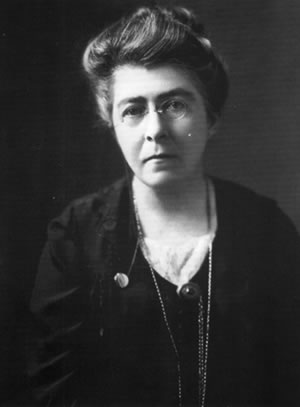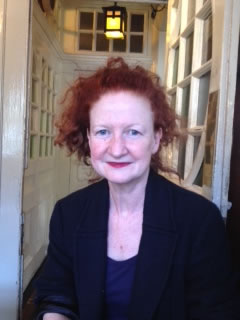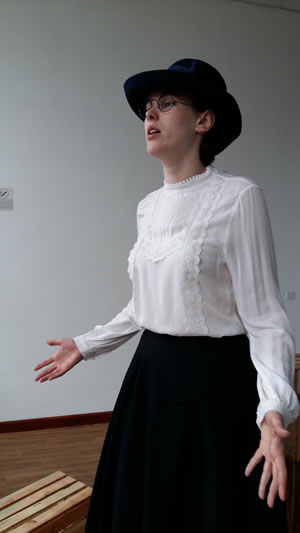The Story Of Ireland's Leading Suffragette Comes To The Tabard Theatre
One-woman play about the life of Hanna Sheehy Skeffington
|
A theatre production, which tells the story of Ireland’s leading Suffragette, Hanna Sheehy Skeffington is coming soon to London’s Tabard Theatre, (from Tuesday 19 July until Sunday 24 July.)
Sheehy Skeffington, Reminiscences of An Irish Suffragette, is a one woman play, written and directed by Rosalind Scanlon and performed by actress, Ailis Duff.

At the time of her death in April 1946, in her obituary, The Irish Times described Hanna Sheehy Skeffington as ‘the ablest woman in Ireland’. Born in Cork in 1877, Hanna grew up in a Republican household. Her father was a member of ‘The Irish Republican Brotherhood’ and had been imprisoned several times for republican activities. Her uncle Eugene was a famous Land League priest, who once shared a platform with Anna Parnell and was a strong supporter of ‘The Ladies Land League’. As a three year old child, Hanna visited her uncle Eugene in Kilmainham Jail. When she was ten years old, her family moved to Dublin, where years later Hanna would become one of the first women in Ireland to go to University. Women were not allowed at that time, to attend the same lectures as men, but they were allowed to sit the same examinations. Hanna graduated from University College Dublin with a Masters in French and German.
While she was at UCD she met her future husband Francis Skeffington, (Frank). An ardent pacifist and feminist and a conscientious objector, he was also hugely active in Irish politics. A much loved figure in Dublin, he was admired by Dublin’s free spirited thinkers, the poets, the writers, artists and dreamers who were at the time dreaming of a free Ireland and were preparing to go forth and bring about an Irish Uprising.
In 1903 Hanna and Frank got married and in order to mark their commitment to equality for the sexes, they combined their last names to ‘Sheehy Skeffington’. Shortly after they married, they formed ‘The Irish Women’s Franchise League,’ a campaign group for Irish women’s rights. In 1912 Hanna was arrested for the first time for militant suffrage action, along with a few other Irish Suffragettes, she had broken windows at Dublin’s Custom House, the GPO and Dublin Castle. It was to be the first of five prison sentences that Hanna would endure in her life time.
During the 1913 Lockout, Hanna was one of the key figures who set up the Dublin soup kitchen, which fed hundreds of strikers and their families and helped save them from starvation.
In 1914, When World War I broke out, Hanna and Frank fervently campaigned against it and strongly objected to the conscription of young Irish boys and men, who they believed would to be used as front line fodder for the convenience of the British Military.

Rosalind Scanlon
Rosalind Scanlon, whose shorter version of the play was performed in The Tabard Theatre some years ago, says that while researching for a subject relating to Irish women's role in history, she realised that Hanna's was a story that hadn't been told and needed to be.

Rosalind describes Ealing-based Ailis Duff, who plays the role of Hanna as a "natural talent."
It took Rosalind about five weeks to write the play. She says it was quite a task to separate the elements of Hannah's long and eventful life for a one-hour play, but she decided to focus on the suffrage movement, and divided the play into two acts.
"It portrays a woman with a strong voice who has integrity. She was a pacifist and believed there were other ways to bring about change. That's a message that's very important at this particular time in the world."
Performances at take place at 7.45pm with Saturday matinees at 4pm. Tickets cost £15 or £12 for concessions and can be booked on the Irish Cultural Centre web site or by phoning 020 8563 8232.
July 8, 2016